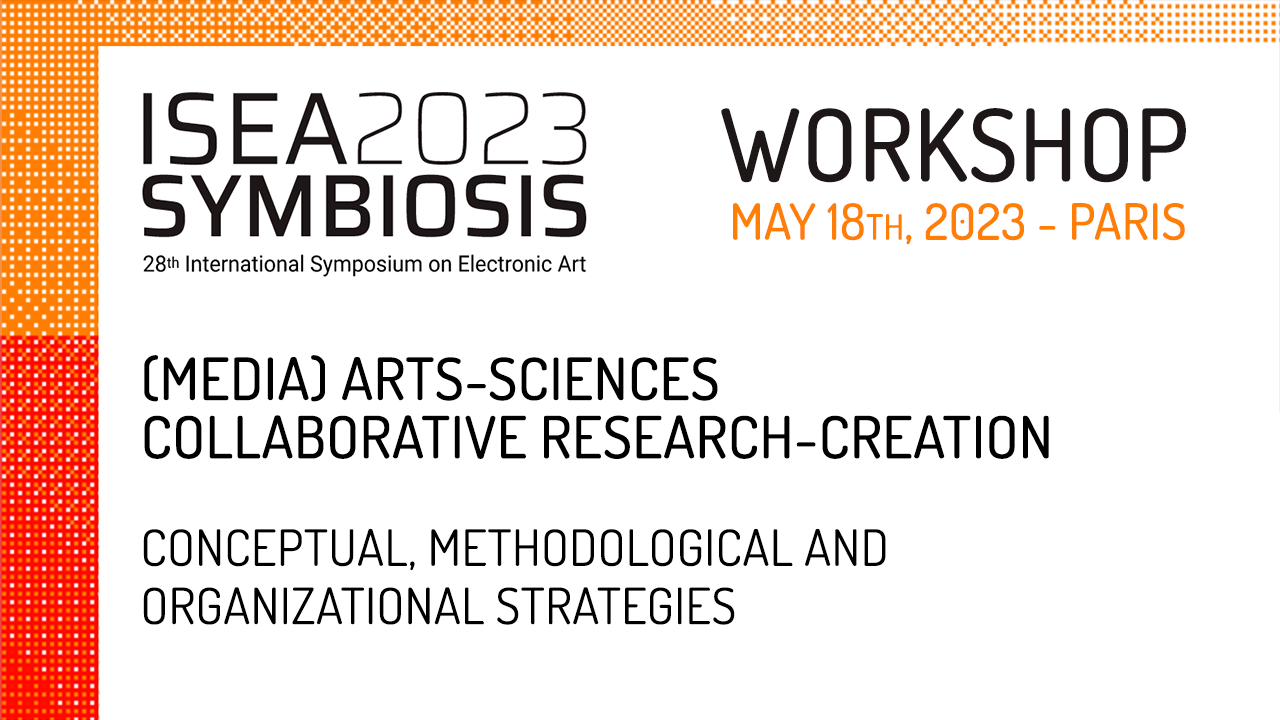18.05.2023 – 10AM to 4:30PM
The imperative for interdisciplinary research has been around and growing, promoted by major research funding bodies for a few decades. As a result, we can now begin to study how such research operates and compare case studies to better understand the most effective strategies and conditions for interdisciplinary collaboration. However, in the majority of existing reports the disciplines assembled are from relatively close epistemic cultures and the effectiveness of collaborations usually correlates with applied results or scientific breakthroughs.
Furthermore, in most reports, institutional and organizational considerations are set as the background conditions for the research that is conducted (Stokols, Hall, Taylor & Moser, 2008 ; Cooke and Hilton, 2015). Few empirical studies pertain to collaborations across the arts and the sciences, and rarely address how the institutional structures change or are affected by new types of research.
Cooke, N. J.. and Hilton, M. L. Eds. 2015. Enhancing the Effectiveness of Team Science. National Academies Press, Washington, US.
Stokols, D., Hall, K. L., Taylor, B. K., and Moser, R. P. 2008. The science of team science: overview of the field and introduction to the supplement. American Journal of Preventive Medicine , 35 (2), 77-S89.
Owen, H. 2008. Open Space Technology. A User’s Guide. Berret-Koehler Publichers, Inc. San Francisco, US.
-
MORNING: 10AM – 12h30PM
The collaborative art-science projects that will be presented and examined in the first part of this workshop are examples of disciplinary assemblages operating in different institutional contexts. They are projects that emerge from associations of radically distant disciplinary cultures that instigate change in the systemic structures of their institutional contexts.
Case Studies:
- [15 min + Q&A] Project Visions transatlantiques – Juliette Lusven, doctoral researcher, Université du Québec à Montréal in collaboration with Anne De Vernal, Professor, département des sciences de la Terre et de l’atmosphère, UQAM.
- [15 min + Q&A] RESHAPE Reshaping real-time digital art practices with reinforcement learning: A reflexive and ethnographic research-creation study by Sofian Audry, Professor École des médias, UQAM.
- [15 min + Q&A] Nuages – Yan Breuleux, Professor École NAD – Université du Québec à Chicoutimi, in collaboration with Ghyslain Gagnon, Professor École de technologie supérieure de Montréal and Marie-Ève Bilodeau, PhD.
- [15 min + Q&A] Fossilation (2021) and recapture (in progress) – collective works presented by Alice Jarry, Professor Design and Computation Arts, Concordia University.
- [20 min + Q&A] “Point d.Origine” – artwork from Nicolas Reeves – “Et mainte page blanche entre ses mains froissée” and “Acquinière – à la recherche de brumes miraculeuses” – projects from Jean-Marc Chomaz, Professor, Laboratoire d’Hydrodynamique, CNRS-École polytechnique (Paris) and Nicolas Reeves, Professeur École de Design, UQAM.
Moderator : Manuelle Freire, General Coordinator Hexagram Network ; Associate Professor UQAM.
-
AFTERNOON: 2AM – 4:30PM
The second part of this workshop (afternoon) will identify challenges and organizational strategies for the constitution of teams and better management of art-science research-creation projects, research labs and institutes engaged in such projects. Through the method of a focus group deploying an Open Space forum methodology (Owen, 2008), presenters and participants will devise recommendations to inform policies for funding research and communication / dissemination of research, to increase dissemination and perceived value of such endeavors for all stakeholders, specifically for artists-researchers in what comes to professional advancement in academia.
This workshop is addressed to practitioners and managers of communities of practice, organizations, networks, and research centers invested in collaborative research and artistic production across arts, design and sciences. It aims to contribute common policy and best practices for interdisciplinary and interinstitutional research-creation.
Facilitators:
- Sofian Audry, Professor École des médias – UQAM, co-director of the Hexagram Network and co-investigator member;
- Danny Perreault, Professor École des médias – UQAM, member of the Hexagram Network;
Cette publication est également disponible en :
Français (French)

